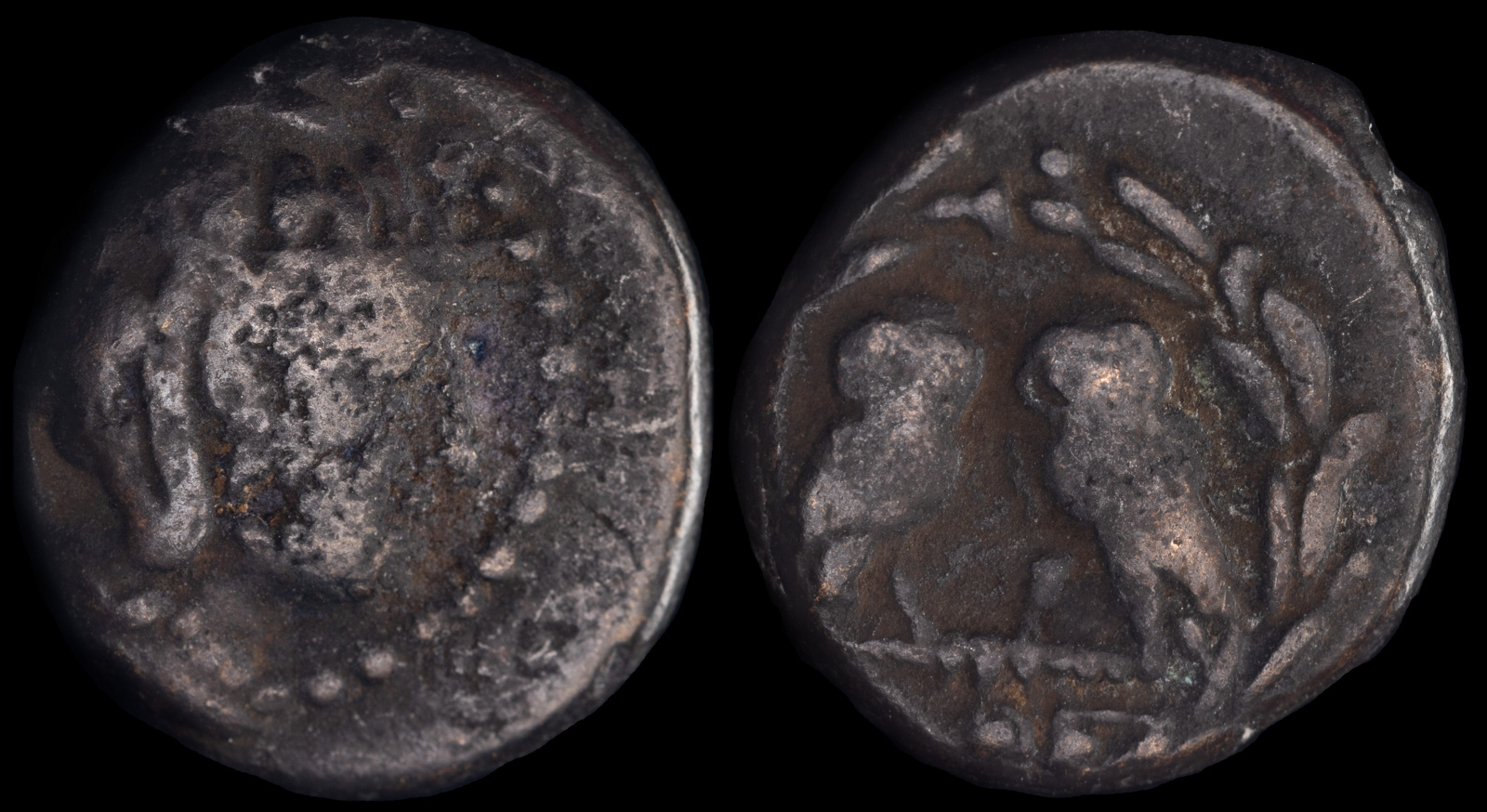
Attica, Athens
322/17-307 BCE
Ae 3.2g, 13.21mm 12h
Obv.: Helmeted head of Athena right within dotted border.
Rev.: Two owl confronted, heads facing, on thunderbolt, all within wreath. AΘΕ below.
REf.: Kroll 46, HGC 4, 1726
While I was reading Plutarch’s Life of Demetrios the other day, I noticed that Demetrios of Phaleron was dictator over Athens – having been installed there by Kassander – from 317-307 BCE, when he was deposed by Demetrios Poliorketes – the subject of Plutarch’s story. The obvious thought was – could a coin be assigned to that time?
Luckily, it didn’t take too much research to determine the answer was “yes”. Kroll discusses this specifically.
<
So, now all I had to do was obtain Kroll 46 or maybe 44 or 45, no easy task when it comes to Athenian bronzes. (note: yes, I’m sure Kroll’s dating may be debated, but since his research bodes well for me, I’m accepting it). There are a few other types I’ve been waiting on for over a year now, so it would have to join the list.
However, as luck would have it, I’d picked up Kroll 46 just the week before when an intriguing bronze popped up and I grabbed it.
Demetrios of Phaleron was an interesting guy, a rare philosopher actually put into a leadership role. He studied under Theophrastos – famous today for his Characters – along with the famous playright Menander, who was the prime driver for new comedy (though personally I far prefer the old comedy of Aristophanes).
He played a major role in Athens even before Kassander installed him, having been on the more moderate and less anti-Macedonian side of Phokion. He wrote extensively and was often quoted by Plutarch and others, but otherwise all of his works have perished.
Even in ancient times, the efficacy of Demetrios of Phaleron’s rule was controversial. One example is from Strabo.
<
After being deposed by the other Demetrios, he fled to Ptolemy in Egypt, where according to Diogenes Laertius:
<
Someday, when I visit Egypt, this may cause a bit of unrest for sleep.
Demetrios of Phaleron is born in Phaleron, a port of Athens.
Demetrios of Phaleron purchases the debts of the philospher Xenokrates of Kalchedon, saving him from slavery.
Demetrios Poliorketes takes Athens from Kassander and forces Demetrios of Phaleron to flee to Thebes.
Pleistarchos, Eupolemos and Kassander are defeated at the Diplyon Gate – the only double gate for Athens – by the Athenians while trying to re-install Demetrios of Phaleron.
Demetrios of Phaleron travels to the court of Ptolemy I Soter in Alexandria.
Ptolemy II Philadelphos exiles Demetrios of Phaleron to Upper Egypt due to his support for Ptolemy Keraunos.
Approximate year for the death of Demetrios of Phaleron, reportedly by a poisonous snake, in Upper Egypt.